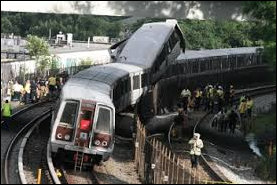
Washington Metro needs another $242 million from Virginia and its localities over three years.
The train wreck of the Washington Metro keeps piling up higher. The Washington Post sums up the situation this way: Local governments are “alarmed” as Metro says it needs an extra $1 billion over the next three years from Virginia, Maryland and Washington, D.C.
Metro General Manager Paul J. Wiedefeld has earned credibility as an executive willing to make tough decisions, such as shutting down rail service at times and locations where maintenance and repairs are urgently needed. Now he’s telling local governments in the Washington area that fulfilling his goals for safety and reliability — needed to reverse a continued decline in ridership — will cost them an additional $1 billion over what they’ve budgeted for the next three years. That translates into a 36% increase in annual operating subsidies. Writes the Post:
According to Metro’s new forecasts, the District’s total contribution for operations and capital would jump from $467 million in the current budget year to $735 million in fiscal 2020. Maryland’s total would rise from $479 million to $727 million, and Virginia’s would increase from $332 million to $574 million. (Metro’s fiscal years run from July 1 to June 30.)
“We have a $40 billion investment [in Metro], and it’s 40 years old,” said Wiedefeld. “As we replace that, there’s big numbers going forward, and they grow with inflation. . . . Either we start to wrestle with this so it’s where we want it to be, or we just push it down the road.”
Bacon’s bottom line: Maintenance is a bitch, especially when you fail to properly fund it over 40 years. Politicians love the accolades for building new highways, bridges and transit projects. Of course, the ribbon-cutters are long gone when the infrastructure wears out and someone else has to pay to fix it. I wonder how many other Metros there are in Virginia, quietly racking up unfunded maintenance liabilities while nobody notices.


